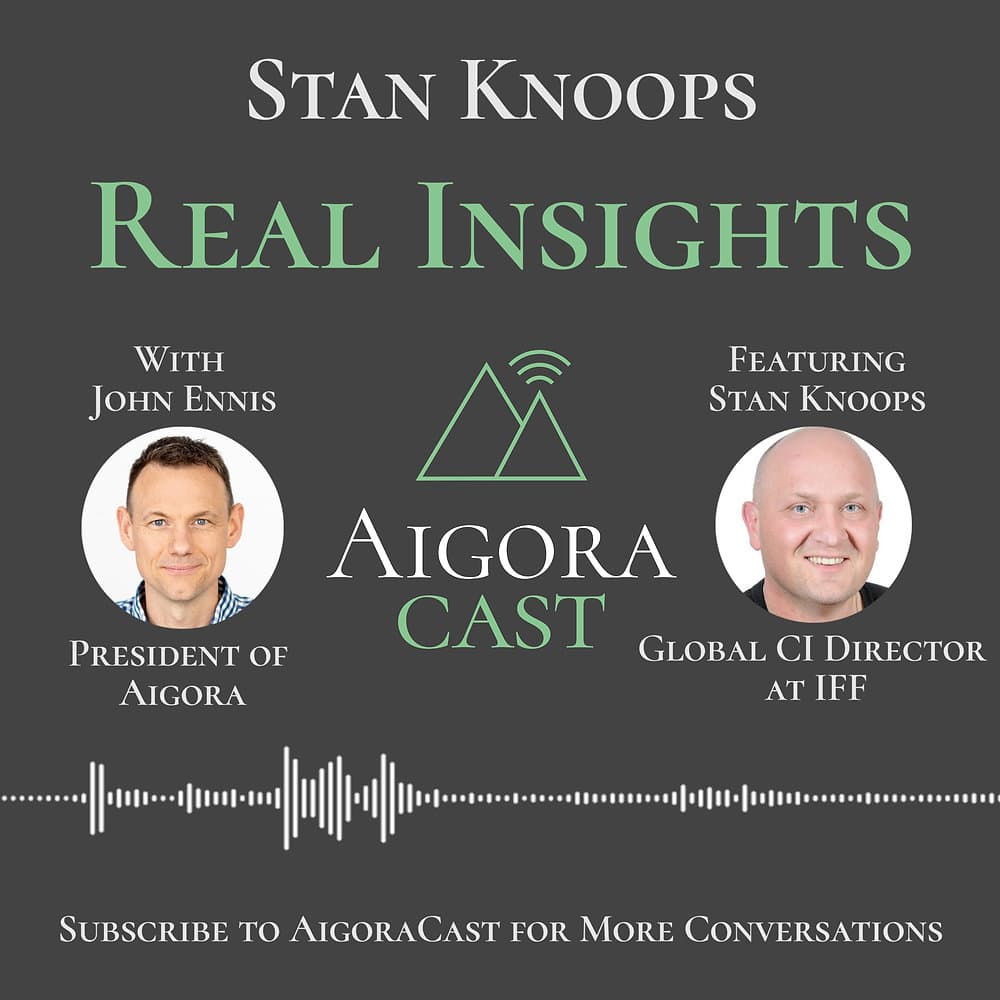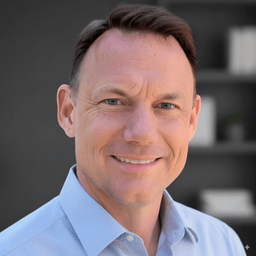Stan Knoops - Real Insights

Executive Summary
In this episode of Real Insights, host John Ennis sits down with Stan Knoops, a seasoned and highly respected sales leader with extensive experience at global giants like Oracle and Salesforce. Stan shares his journey from an individual contributor to a strategic leader, offering profound insights into the nature of modern enterprise sales, the core principles of effective leadership, and the power of focused personal development.
Key insights from the conversation include:
- Leadership is Coaching: Stan emphasizes that a leader's most critical role is to be a coach. This involves helping team members identify their single biggest area for improvement—their "one thing"—and supporting them in mastering it, rather than just managing performance metrics.
- The "One Thing" Philosophy: True growth, both for individuals and teams, comes from focusing intensely on improving one specific skill or behavior at a time. This targeted approach leads to more significant and lasting development than trying to fix everything at once.
- Beyond Sales Stereotypes: Modern enterprise sales has evolved far beyond the aggressive, transactional clichés. It is a professional discipline requiring deep business acumen, trust-building, strategic thinking, and the ability to orchestrate complex solutions over long cycles.
- Self-Awareness as a Superpower: Stan highlights vulnerability and self-awareness as foundational traits for any leader. Understanding and being open about one's own strengths and weaknesses fosters trust and creates a culture where continuous improvement is the norm.
Connect with Stan Knoops on LinkedIn.
Full Transcript
Introduction and Career Beginnings
John Ennis: So, here we are with Stan Knoops. Stan, how are you?
Stan Knoops: I'm good, John. How are you?
John Ennis: Very good, thank you. Stan, we've known each other for a number of years, and I've always been extremely impressed with you as a person and as a sales professional. For the benefit of the audience, could you give a bit of an overview of your career to date?
Stan Knoops: Sure. I've been in technology sales for 20 years. I started my career at Oracle, where I spent just under 10 years. I started as an individual contributor and then moved into a leadership role. After Oracle, I spent eight years at Salesforce, where I also held various leadership positions, from frontline manager to second-line leader. I left Salesforce to become the Chief Revenue Officer for a smaller company, and now I'm back in a more operational sales leadership role. So, a 20-year journey, primarily in enterprise software sales.
The Transition from Contributor to Leader
John Ennis: What was the trigger for you to move from being a successful individual contributor to a leader? Was that something you always wanted to do?
Stan Knoops: It's a great question. Honestly, it wasn't a burning ambition from the start. As an individual contributor, I was very focused on my own success, my targets, and my commission. But over time, I started to derive more satisfaction from helping my teammates. When a new person joined, I'd enjoy showing them the ropes and seeing them succeed. That's when I realized I got more energy from helping others achieve their goals than just hitting my own number. The transition felt natural because my focus had already shifted towards coaching and enabling others.
Core Principles of Sales Leadership
John Ennis: What do you see as the primary function of a sales leader?
Stan Knoops: For me, the number one function is to be a coach. Your job is to make the people on your team better. It's not just about inspecting the pipeline or forecasting. It's about sitting down with each person, understanding their unique challenges, and helping them improve. If you can make every single person on your team even a little bit better, the collective result is massive. The numbers, the forecast, the revenue—that's all a lagging indicator of how well you're coaching and developing your team.
John Ennis: I love that. So, it's not about being a deal inspector but a people developer.
Stan Knoops: Exactly. You can't do the job for them. You have to create an environment where they can learn, grow, and ultimately own their success. My goal is to make myself redundant in a way. I want my team to be so skilled and self-sufficient that they don't need me for every little thing. That's the hallmark of a great leader.
The "One Thing" Philosophy for Growth
John Ennis: You've talked before about a concept you call the "one thing." Can you explain that?
Stan Knoops: The "one thing" is about focus. When you're trying to develop, whether as a leader or an individual contributor, it's easy to get overwhelmed with a list of ten things you need to improve. The reality is, you can't effectively work on ten things at once. The "one thing" philosophy is about identifying the single most impactful area for improvement and focusing all your energy on that. It might be prospecting, discovery calls, negotiation, or even time management. We identify that one thing, we create a plan to improve it, we track progress, and we don't move on to the next thing until we've seen a real, tangible improvement. It's about depth over breadth.
John Ennis: How do you help someone identify their "one thing"?
Stan Knoops: It's a collaborative process. It starts with observation—listening to their calls, joining their meetings, looking at their data. But it's also about asking them. Often, people have a good sense of where they're struggling. I'll ask, "If you could wave a magic wand and be better at one part of your job, what would it be?" The answer to that question is usually their "one thing." Once we agree on it, it becomes our shared focus for the next quarter.
Debunking Sales Stereotypes
John Ennis: The perception of sales is often shaped by movies like 'The Wolf of Wall Street' or 'Glengarry Glen Ross'—very aggressive, transactional, and unethical. How does that compare to the reality of modern enterprise sales?
Stan Knoops: It couldn't be further from the truth. That stereotype is not only outdated, but it's also completely ineffective in the world of complex enterprise sales. Our sales cycles are long—often six, twelve, eighteen months. You simply cannot build the kind of trust required to close a multi-million dollar deal with those kinds of tactics. Enterprise sales is a profession. It's about being a trusted advisor, understanding a client's business on a deep level, and orchestrating a huge number of internal and external resources to solve a complex problem. It's strategic, it's intellectual, and it's built on relationships and value, not pressure.
Advice for Aspiring Sales Professionals
John Ennis: What advice would you give to someone just starting their career in sales today?
Stan Knoops: First, be a sponge. Learn everything you can—about your product, your industry, your customers, and the craft of sales itself. Second, find a mentor and a great manager. A good leader will accelerate your career tenfold. Third, embrace the hard work. There are no shortcuts. The early years are about building a foundation of skills and work ethic that will serve you for your entire career. And finally, be patient. Success doesn't happen overnight. It's a marathon, not a sprint.
Final Thoughts
John Ennis: Stan, this has been incredibly insightful. Any final words of wisdom?
Stan Knoops: I would just say that personal growth and professional growth are two sides of the same coin. The work you do on yourself—developing self-awareness, being open to feedback, focusing on your "one thing"—is the most important investment you can make. Be curious, stay humble, and never stop learning.
John Ennis: Wonderful. Thank you so much for your time, Stan. How can people connect with you?
Stan Knoops: The best place is LinkedIn. Just search for Stan Knoops, and you'll find me.

About John Ennis
John Ennis is a leading expert in sensory science and consumer research, with extensive experience in statistical analysis and product development methodologies.